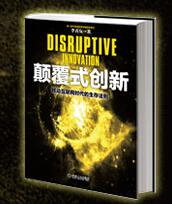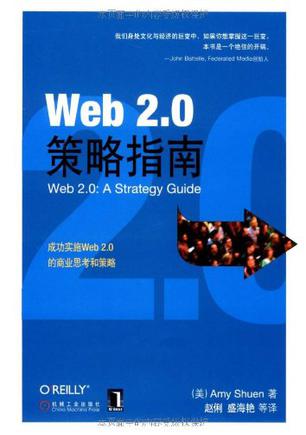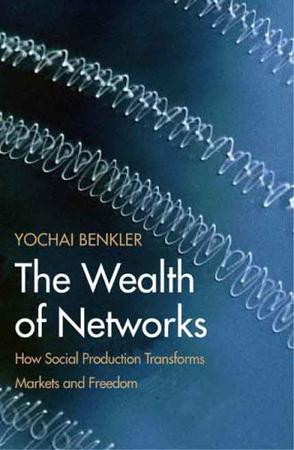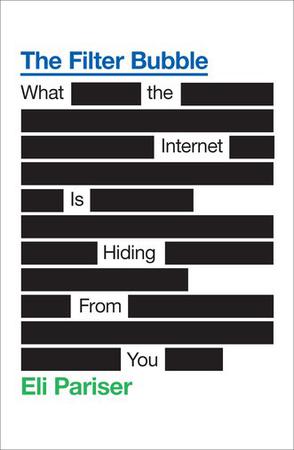-

颠覆式创新:移动互联网时代的生存法则
为什么把每件事情都做对了,仍有可能错失城池?为什么无人可敌的领先企业,却在一夜之间虎落平阳? 短短三年间诺基亚陨落,摩托罗拉区区29亿美元出售给联想,芯片业霸主英特尔在移动芯片领域份额几乎为零,风光无限的巨头转眼成为被颠覆的恐龙,默默无闻的小公司一战成名迅速崛起,令人瞠目结舌的现象几乎都被“颠覆式创新”法则所解释。颠覆式创新教你在新的商业竞争中“换操作系统”而不是“打补丁”,小公司用破坏性思维可以“以小博大”占领新兴市场。大公司进行自我攻击,才是唯一活下去的机会,今天,全人类都面临一个在新“价值网”中生存的大悬难。 《颠覆式创新:移动互联网时代的生存法则》从哲学、物理、思维、管理多个维度,探索已知世界的边界,透过费解的现象,揭示商业社会中令人惊悚的真相。不确定的世界里,探索比结论重要,移动互联网时代,见识比知识更重要。 -

信息渴望自由
纵观信息技术的发展历程,基本上海15年会有一个大的范式转移。1980年是个人电脑,1995年是互联网,2010年则是云计算。我们正在进入下一个创新周期,会出现前所未有的整套新工具和新应用。就如同此前的大型机和个人计算机一样,这个新的平台所支持的服务将彻底改变我们的生活。 从全球来看,越来越多的信息以越来越快的速度被传送到越来越多的人手中,无论是宽带网、无线通信还是智能终端的普及都在推动这一趋势。开放的信息是民众所求,正如在互联网上流传多年的那个著名的口号所言:“信息渴望自由” (information wants to be free)。在《信息渴望自由》中,作者胡泳从新传播技术人手,探讨了新媒体对普通公众、网络舆论、知识生产。世界秩序、公共外交等领域的全新影响。《信息渴望自由》中既有对新媒体影响下社会万象的深入思考和剖析,也有对人类未来数字化生存状况的预言与展望,运思新颖,文笔凝练,读之令人耳目一新。 -

Web2.0策略指南
《Web2.0策略指南》是有关战略的。书中的示例关注的是Web 2.0的效率,而不是聚焦于技术。你将了解到这样一个事实:创建Web 210业务或将Web 2.0战略整合到现在业务中,意味着创建一个吸引人们前来访问的在线站点,让人们愿意到这里来共享他们的思想、见闻和行动。当人们通过Web走到一起时,结果可能远远大于各部分的和。随着传统的“口碑传诵”助推站点高速成长,客户本身就能够帮助建立站点。 Web 2.0已成为新闻焦点,但它是如何赚钱的?作为一个简明指南,《Web2.0策略指南》解释了Web 2.0有什么特异之处,以及这些特异之处如何帮助公司赢利。无论你是一位正在谋划下一步行动的执行官,还是正在寻找扩张途径的企业主,或是正在规划下一个创新业务的企业家,《Web2.0策略指南》都通过真实生活中的示例展示了各种规模的公司如何在当今的网络上创造新机遇。 -

The Wealth of Networks
With the radical changes in information production that the Internet has introduced, we stand at an important moment of transition, says Yochai Benkler in this thought-provoking book. The phenomenon he describes as social production is reshaping markets, while at the same time offering new opportunities to enhance individual freedom, cultural diversity, political discourse, and justice. But these results are by no means inevitable: a systematic campaign to protect the entrenched industrial information economy of the last century threatens the promise of today’s emerging networked information environment. In this comprehensive social theory of the Internet and the networked information economy, Benkler describes how patterns of information, knowledge, and cultural production are changing—and shows that the way information and knowledge are made available can either limit or enlarge the ways people can create and express themselves. He describes the range of legal and policy choices that confront us and maintains that there is much to be gained—or lost—by the decisions we make today. -

The Filter Bubble
In December 2009, Google began customizing its search results for each user. Instead of giving you the most broadly popular result, Google now tries to predict what you are most likely to click on. According to MoveOn.org board president Eli Pariser, Google's change in policy is symptomatic of the most significant shift to take place on the Web in recent years-the rise of personalization. In this groundbreaking investigation of the new hidden Web, Pariser uncovers how this growing trend threatens to control how we consume and share information as a society-and reveals what we can do about it.Though the phenomenon has gone largely undetected until now, personalized filters are sweeping the Web, creating individual universes of information for each of us. Facebook-the primary news source for an increasing number of Americans-prioritizes the links it believes will appeal to you so that if you are a liberal, you can expect to see only progressive links. Even an old-media bastion like T -

After the Internet, Before Democracy
China has lived with the Internet for nearly two decades. Will increased Internet use, with new possibilities to share information and discuss news and politics, lead to democracy, or will it to the contrary sustain a nationalist supported authoritarianism that may eventually contest the global information order? This book takes stock of the ongoing tug of war between state power and civil society on and off the Internet, a phenomenon that is fast becoming the centerpiece in the Chinese Communist Party's struggle to stay in power indefinitely. It interrogates the dynamics of this enduring contestation, before democracy, by following how Chinese society travels from getting access to the Internet to our time having the world's largest Internet population. Pursuing the rationale of Internet regulation, the rise of the Chinese blogosphere and citizen journalism, Internet irony, online propaganda, the relation between state and popular nationalism, and finally the role of social media to bring about China's democratization, this book offers a fresh and provocative perspective on the arguable role of media technologies in the process of democratization, by applying social norm theory to illuminate the competition between the Party-state norm and the youth/subaltern norm in Chinese media and society.